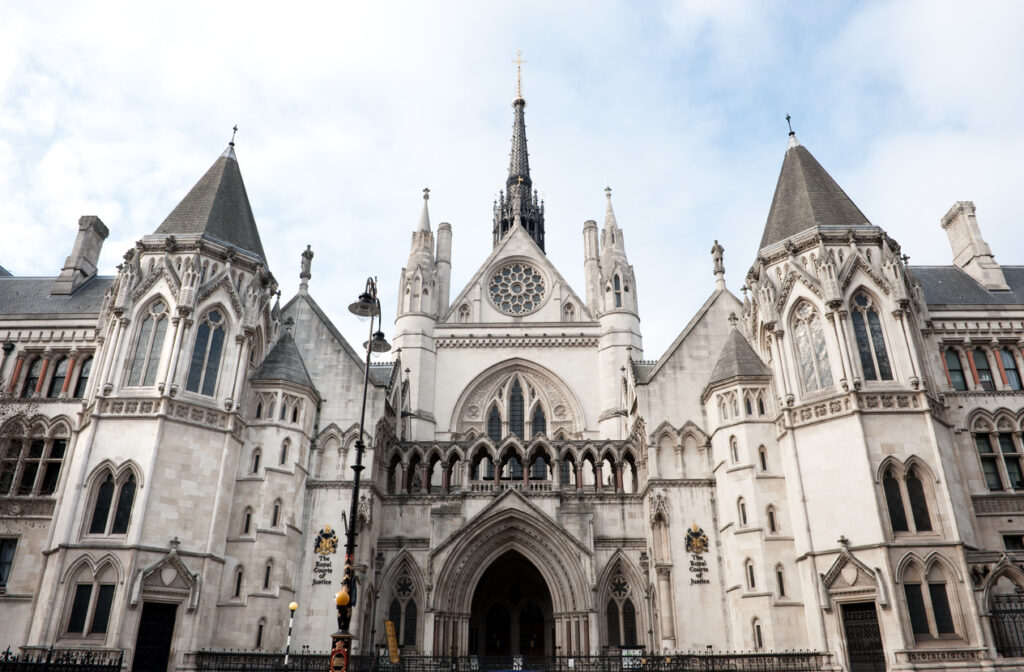Disputes can quickly derail even the most carefully planned developments, affecting timelines, increasing costs, and putting your commercial interests at risk. Whether you’re dealing with issues related to building or opposing a planned development or land use, these conflicts can be complex and challenging.
We understand that time is money, and a stalled development not only delays project completion but also leads to escalating expenses and potential reputational damage. Early legal intervention is key to resolving disputes swiftly, minimising disruption, and keeping your project on track.
From common issues like overage, options and conditional contracts , to more specialised matters such as rights to light, restrictive covenants , and Building Safety Act claims, our experienced team can support you in resolving in a wide range of development disputes
In a landscape where legal and regulatory requirements are constantly evolving, it’s essential to have a partner who can balance the complexities of the law with the realities of your development project. Whether you need proactive advice to prevent disputes, or robust representation to resolve them, we’re here to help and safeguard your investment.

Justine Ball
Partner
Specialising in Development Disputes law
Rights to light
Right to light disputes may arise when a new development obstructs natural light to existing properties, potentially affecting business operations and property values. If you’re a developer it is essential to consider and address this right at the start of the development process to avoid unexpected legal actions that might halt construction or, even worse, force you to make costly modifications to that development. If you’re a nearby landowner to a proposed new development, it is crucial to take proactive measures to safeguard your rights from significant infringement and preserve your existing property value.
Overage
Overage agreements may grant you additional payments if your property’s value increases after the sale due to future developments or securing planning permission. These agreements specify the conditions under which you receive extra payments, the percentage, and the agreement’s duration. However, they can be complex and lead to disputes when sellers and buyers disagree over future land value increases that are tied to development. Our expert team will help you resolve those disputes to ensure you receive fair compensation and clear, protective terms in your property transactions.
Options and conditional contracts
Options and conditional contracts are crucial in property development. Although these agreements allow land or property to be secured for future development, contingent on specific conditions being met (such as obtaining planning permission), they also come with potential risks. As disputes can arise over unclear terms or unmet conditions, potentially delaying your project or leading to financial losses, our team will ensure your options and conditional contracts are clearly drafted, enforceable, and align with your development goals.
Restrictive covenants
Restrictive covenants can significantly impact your development plans by limiting how you use or alter your property. Disputes often arise when existing covenants restrict building works, or when you seek to modify or remove them, which can stall progress and lead to costly legal battles. Our team specialises in resolving restrictive covenant disputes, whether through negotiation, modification, or litigation, ensuring your development proceeds smoothly.
Building safety act claims
The Building Safety Act introduces stringent safety standards and legal obligations for developers, particularly in high-rise residential projects. Although compliance is essential, disputes may arise over responsibilities, defect claims, or remediation costs. If you’re facing challenges related to the Building Safety Act, our team can provide expert legal support. We assist in navigating claims, ensuring that your liabilities are minimised and that safety issues are addressed promptly. With our guidance, you can protect your development from potential legal and financial repercussions.
Site clearance
Site clearance is a critical step in the development process, but it can lead to disputes, especially over environmental concerns, boundary issues, obtaining possession from difficult tenants or unexpected costs. Whether dealing with contaminated land, unanticipated obstructions, or disputes with neighbouring properties, these challenges can delay your project and increase costs. We’re well-versed in handling site clearance disputes, providing clear advice and practical solutions to keep your development on track. We work to resolve conflicts swiftly, ensuring that your site is ready for development without unnecessary legal complications.
Oversailing
Oversailing occurs when construction tools or part of a structure, such as a crane or building overhang, crosses into airspace overing a neighbouring property. Since the airspace above a property is legally part of that property, entering it without permission constitutes trespassing, and the owner may be able to secure a court order to stop the work. As these disputes could potentially halt your development, securing oversailing rights early on is essential to avoid costly delays or legal action.
Telecoms
Telecoms issues can be a significant hurdle in property development, especially with the installation or relocation of telecoms infrastructure on your site. Disputes may arise with telecoms operators over access rights, removal of equipment, or compensation. These conflicts can delay construction and impact your project’s viability. Our team has a wealth of experience in resolving telecoms disputes, providing strategic advice and negotiation support. We will help you manage these challenges effectively, ensuring that your development progresses without unnecessary interruptions.
Party wall act
The Party Wall Act governs works that affect shared walls or boundaries between properties. Disputes often arise when neighbours disagree over the extent of work, potential damage, or access rights. Our team of specialists can guide you through the complexities of the Party Wall Act, ensuring proper notices are served, and disputes are resolved efficiently. We help protect your development from costly delays, ensuring a smooth relationship with neighbouring property owners.
Why choose Shakespeare Martineau?
- Our team offer prompt and professional service, whether through in-person meetings or virtual consultations, you can trust that our advice will be timely and professional, helping you feel confident in your legal matters, every step of the way
- We provide advice that is not only pragmatic and quick but also easy to understand. Every lawyer in our firm is approachable, helpful, and committed to offering reliable legal solutions, making the process straightforward for clients
- Our clear and easily understandable approach has kept clients coming back for years, knowing they can depend on us for comprehensive legal support time and time again
- Our clients regularly highlight the exceptional expertise and professionalism of our lawyers. Our team cares deeply about every aspect of your case, ensuring you receive a thorough and attentive service


Mastering real estate disputes
We’re known as skilled and confident litigators for all types of real estate litigation, including handling complex development disputes. We’re also great negotiators, experienced in mediation, arbitration, and other dispute resolution alternatives.
Leading property litigation experts
We are ranked as a leading firm in Legal 500 for our property litigation service, demonstrating our expertise and exceptional record of accomplishment in handling an array of commercial development disputes. Our strategic approach to resolving disputes quickly and efficiently means we minimise project delays for our clients, saving them money.
Expertise in planning and disputes
Our team has an in-depth knowledge of planning laws and regulations, with particular sector expertise in the higher education, telecoms and energy markets, as well as dealing with agricultural property disputes.
Tailored strategies, winning results
Success takes many forms, and we understand that every situation is unique. That’s why we take the time to understand what matters most to you—whether it’s a decisive courtroom victory or a more amicable resolution. We’ll guide you through potential challenges and avoid pitfalls along the way and, if litigation becomes necessary, we’ll use our extensive experience to vigorously defend your corner.
Related services
Meet our Development Disputes team
Building a responsible business
Our commitment to sustainability and social impact
We are an accredited B Corporation that is committed to driving positive change in our communities, minimising our impact on the environment, and ensuring an all inclusive diverse and supportive culture for our people.
Wherever you are on your journey, our Development Disputes specialists are here to answer any questions you might have
If you’d like to speak to a member of our team, please fill out the enquiry form. We will aim to reply to your query within 2 hours
Need to talk to someone sooner? You can call use at the number below
Call Us: 0330 024 0333
Development Disputes FAQs
From local planners and developers to contractors and the public, disputes can arise between parties at any point during the development process. Some of the most common types of development disputes occur over:
- Outstanding payment or non-payment
- Changes in the scope of the project
- Right to light
- Restrictive covenants
- Overage
- Building Safety Act claims
- Site clearance
- Oversailing
- Party Wall Act
- Telecoms
- Delays
Developers can reduce the likelihood of disputes during the planning process through proactive and strategic measures, such as:
Early legal involvement: This ensures compliance with local planning laws, environmental regulations, and planning requirements, helping to identify potential legal issues before they become disputes.
Stakeholder engagement: Engage with local authorities, communities, and other stakeholders early in the process. Open communication can address concerns and reduce opposition, which often leads to disputes.
Contract clarity: Ensures that all agreements, including contracts with architects, contractors and consultants, are clear, detailed, and legally sound. This will help minimise misunderstandings and set clear expectations.
Dispute resolution strategies: Incorporating dispute resolution clauses into contracts, which will provide a framework for addressing issues without litigation. This saves time, money, and relationships.
Typically disputes with contracts are resolved through the following methods:
Negotiation: The first step to resolving a conflict should be direct negotiation between the parties, as this allows both sides to reach a mutually beneficial agreement without the need for legal proceedings.
Mediation: If negotiation fails, mediation can be used. This involves a neutral third party helping to facilitate a resolution. It’s less adversarial and usually quicker than going to court.
Arbitration: For more complex disputes, arbitration may be chosen. It’s a private process where an arbitrator makes a binding decision based on the evidence presented, often preferred for its confidentiality.
Adjudication: In construction disputes, adjudication is a common method. It’s a faster process where an independent adjudicator makes a binding decision, which can later be challenged in court if necessary.
Litigation: If all else fails, litigation in court remains an option. Though time-consuming and costly, it may be necessary for resolving significant disputes where other methods haven’t succeeded.
Your neighbours cannot appeal a planning decision made by a local authority, however, they can challenge its lawfulness through a Judicial Review. This must be made within six weeks of the decision and is only a possible option if they have a strong legal case, and not just because they don’t agree with it. Although your neighbours can’t stop your development plans (just because they don’t like it), they can request additional details about the project, which may cause delays and additional costs. It’s also worth noting that if your development involves a shared wall or structure with your neighbour, you need to ensure compliance with the Party Wall Act. To avoid any potential issues, it is strongly advised to identify and address any known concerns from neighbours early in the development process.
As with handling disputes with any party in development projects, the same methods are usually encouraged.
Negotiation: Open communication between all parties involved should be the first approach to resolving a dispute. This method allows both sides to find a mutually agreeable solution without resorting to legal action.
Mediation: If negotiations don’t yield results, mediation can be the next step, as it’s generally less confrontational and quicker than court proceedings. During mediation a neutral third party assists in guiding the parties toward a resolution.
Arbitration: Arbitration might be the preferred route if the dispute is more complex. This private procedure involves an arbitrator who reviews the evidence and delivers a binding decision. As the process is private, arbitration is often favoured for its confidentiality.
Adjudication: Adjudication is frequently used in construction-related disputes as it’s usually a quicker process than some of the other methods. An independent adjudicator will issue a binding decision, which can later be contested in court if necessary.
Litigation: If all other avenues are exhausted, litigation remains an option. While it can be time-consuming and expensive, court proceedings may be required for resolving serious disputes where other methods have been unsuccessful.















